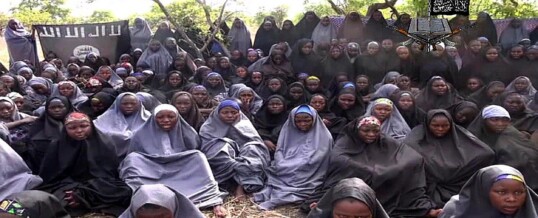
McLeod Group Blog, April 1, 2015
On March 15, 2015, the armies of Chad and Niger drove Boko Haram out of the Nigerian town of Damasak where it had been wreaking havoc for more than five months. The Nigerian military, one of the largest in Africa, was not part of the operation and was nowhere to be seen.
Long ago, in answer to a question about possible Canadian support for eastern Nigeria’s secessionist Biafra, Prime Minister Trudeau replied, ‘Where’s Biafra?’ One might well ask now, ‘Where’s Nigeria?’
An even better question might be, ‘What is Nigeria?’ Staggering corruption, mismanagement of epic proportions and violent ethnic strife have become the Nigerian way of life. Oil, the country’s fourth largest export in 1970, represents more than 95% of Nigeria’s exports today. Once its greatest promise, petroleum has become its greatest curse.
In 2014 Nigeria overhauled its national statistics for the first time since 1990, and the world discovered that the country’s GDP had grown to more than $500 billion, an 89% jump in a single year, making it the largest economy in Africa.
‘Amazing! Just look at all the mobile phones,’ said appreciative commentators. The Nigerian film industry, ‘Nollywood,’ produces thousands of films a year and now contributes 1.42% to the national economy. And what else is there?
Apart from oil, cell phones and some of the world’s worst movies, almost every other sector of the productive economy is in a state of desperation, stagnation or collapse, and a country that once exported food no longer feeds itself. At 4000 megawatts, Nigeria’s electricity output is ten per cent of South Africa’s for a population three times the size. Nigeria boasts 138 universities, up from five in 1970. That’s about three new universities a year, every year for 45 years. And yet 40 percent of the population remains illiterate. In 2004, 55 percent of all Nigerians lived in absolute poverty, earning less than a dollar a day. By 2014 the number had risen to 61 percent, while the country boasted 16,000 millionaires and a Porsche showroom in Lagos. Nigerian legislators pay themselves a base salary of Cdn$237,000, 45% more than a Canadian MP. In 2006, 31 of the country’s 36 state governors were under investigation for corruption.
In the Niger delta, Ogoni activists, demanding a greater share of the oil produced on their land and an end to unchecked environmental destruction, have been brutally suppressed. In the north, Islamic fundamentalism took root and, by 1999, sharia had become the main body of civil and criminal law across the region. Unsatisfied with this, Boko Haram—meaning ’Western education is sinful’—began bombing churches and killing civilians. An estimated 12,000 people, many of them Christians, have become the victims of bombings, riots and massacres—more than double the killings that sparked the civil war in 1967. Women’s rights have vanished in much of Nigeria, and the national government, having so little to occupy itself, in 2014 toughened the country’s already draconian laws against homosexuals.
On March 20, 2015, five days after the armies of Chad and Niger drove Boko Haram from Damasak, Nigerian President Goodluck Jonathan said that the tide was turning and that Boko Haram would be defeated within a month. This is a common refrain, most notably in reference to the ‘imminent’ release of 219 schoolgirls kidnapped a year ago by Boko Haram. Instead, it was bad luck for the President, who was defeated in Nigeria’s first-ever electoral change of government at the end of March.
A day after Jonathan’s interview, Boko Haram attacked Ngala, a town the Nigerian military said it controlled, killing eleven people. And now, it seems, Boko Haram may have kidnapped another 500 Nigerian children.
Maybe the Nigerian military will get its act together. Maybe with the help of smaller, poorer countries like Chad, Mali, Niger and Cameroun, Boko Haram can be subdued. Maybe Western countries, currently distracted by their billion dollar bombing raids on ISIL, will take an interest.
As in other parts of the world where terrorists gather under black flags, however, a military solution is only part of the answer. The anger over poverty, corruption, violence and mismanagement that draws young men to terrorism must also be subdued, and this cannot be done with bullets and bombs. Canada and governments like that of Nigeria ignore the wider imperative at our collective peril.
